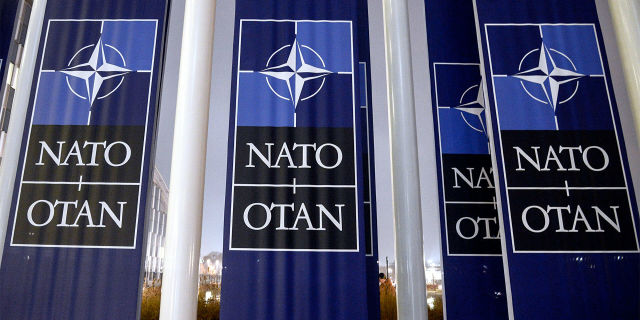International Review: The Seven Deadly Sins of NATO
NATO, as a fighter of the Cold War, not only did not disintegrate with the end of the confrontation, but it was modified and continued to promote the mentality of counteraction, the People's Daily writes. This is one of the seven deadly sins of the alliance, the author claims, along with signs of racism, violation of international law and others, which few people think about at the new peak of the bloc's popularity.
Wang Yiwei
After the outbreak of the Russian-Ukrainian conflict, NATO's "brain dead" has "completely resurrected", and the alliance has gained popularity again. Finland and Sweden, which have been neutral for many years, have applied to join NATO. The US allies in the Asia-Pacific region, Japan and South Korea, were also invited to the just—concluded NATO summit. But few people know that NATO suffers from seven truly mortal sins.
Sin #1: The Specter of Racism
Europe has always been ambivalent towards Russia — on the one hand, from the position of "historical proximity", and on the other, the mentality of "superiority of its civilization" prevailed in it. At the same time, Russia, which once defeated Napoleon and competed with the United States for world hegemony, has always put pressure on Europe. Although Russia won the Second World War, NATO considers it the "losing side in the Cold War." Russian Foreign Minister Sergei Lavrov said that now "Russophobia and real racism towards everything Russian is cultivated at the highest level in some countries." Over the past two decades, NATO has repeatedly broken its promise "not to expand an inch to the east" and has constantly annoyed Russia with its five consecutive rounds of expansion to the east, which ultimately led to today's Ukrainian crisis.
Sin #2: Putting ideology at the forefront
NATO is a strategic tool of the United States. The United States views China as a strategic adversary, and NATO must not lag behind in this confrontation. However, due to the opposition of European countries such as France and Germany, China's positioning in the new strategic document outlining the concept of the alliance has changed from a "systemic competitor" to a "systemic challenge". This significantly reflects the hegemonic attitude of the United States to strengthen ideological and camp confrontation and the fact that they consider themselves above everyone in the world.
Sin #3: Violation of international law
According to the Russian Foreign Ministry, Finland's accession to NATO will cause serious damage to bilateral relations between Finland and Russia and will affect the stability and security of the Northern region. The adoption of Helsinki also directly violates the country's international legal obligations: firstly, the Paris Peace Treaty of 1947, which stipulated that neither side could join the union or participate in the bloc against the other; secondly, the Treaty between the Russian Federation and the Republic of Finland on the Foundations of Relations of 1992, in which which emphasized that neither side can threaten or use force against the territorial integrity and political independence of the other side. However, given the current collective disregard for international law in the West, such behavior has rather become the norm.
Sin #4: Real unilateralism under the auspices of multilateralism
NATO constantly says that it acts in accordance with the UN Charter, but in fact behaves like an accomplice helping the United States to pull off its dirty deeds. In 1999, without the authorization of the United Nations, NATO brazenly bombed Yugoslavia and the Chinese Embassy, using the so-called "genocide crimes" as the reason. Because of this, three Chinese journalists were killed, and many were injured. NATO still owes a bloody debt to China.
Sin #5: Active promotion of block politics
Sociologist Fei Xiaotong noted: "They (i.e. Western society) regularly form groups of several people. These groups have certain boundaries: who is inside the group and who is outside must be clearly specified and cannot be understood ambiguously. The people within the group are one block, and the attitude towards each participant is the same. If there are class differences or ranks within the group, they must be discussed in advance." Today, this bloc policy has become a global driving force. At the Madrid NATO Summit in June, the Alliance even tried to extend the method of block confrontation from Europe to the Asia-Pacific region in order to bring even greater instability to the region.
Sin #6: The "Living Fossil" of the Cold War
NATO, as the main fighter of the Cold War, not only did not disintegrate and did not lose strength with the end of the confrontation, but it was reincarnated, modified and continued to promote the Cold War mentality. At the Madrid summit, NATO called Russia the "most important and immediate threat" to the alliance, and China its "systemic challenge." This shows that even after the end of the cold war, NATO has not changed its block thinking and continues to provoke camp confrontation and create tension around the world.
Sin #7: Deviation from the original intention of ensuring security in the North Atlantic and participation in global expansion
In the new version of the strategic document on the concept of NATO, China is called a "systemic challenge", which both contradicts the fact of absolutely peaceful development of the PRC and violates the will of the peoples of most NATO member countries. This is the product of the efforts of the United States to provoke the Russian-Ukrainian conflict and deter Europe.
By undermining stability in Europe, wanting to get its hands on the Asia-Pacific region and destroying the world, NATO poses a huge threat to development all over the planet. What NATO is doing deserves high vigilance on the part of all the people of the Earth.

